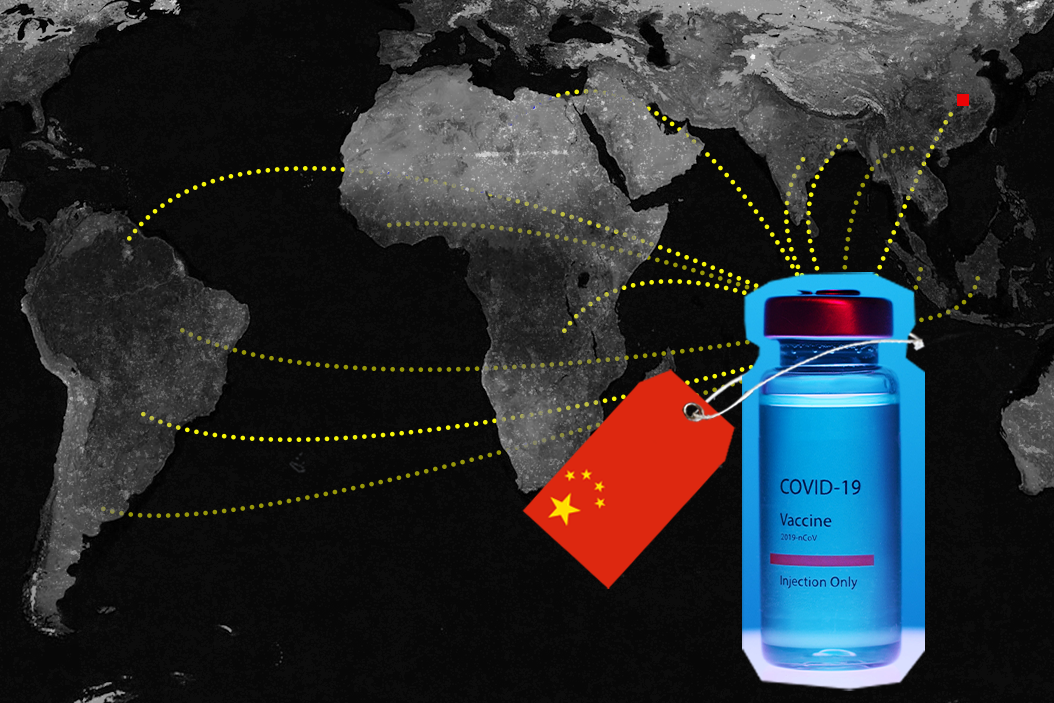As Western countries began rolling out COVID-19 vaccines last week, the UAE became the first nation to authorize use of one of China's vaccines against the coronavirus. Beijing promises a major breakthrough towards ending the pandemic for billions of people across the developing world, but it comes with risks for China, and strings attached for its customers.
First, the good news. According to the Emiratis, China's Sinopharm vaccine is 86 percent effective, slightly less than Pfizer's and Moderna's but more than expected just weeks ago. It's relatively cheap to make and only requires refrigeration, a game-changer for developing nations that lack large-scale cold-storage facilities.
Chinese vaccine makers are looking at a revenue windfall, and poor nations that may soon be able to quickly inoculate large numbers of people won't have to wait as long as they feared to begin to rebuild their economies.
Now the bad news. Chinese officials have largely contained the coronavirus at home and don't need to immediately vaccinate as big a percentage of its citizens as the US does to return to normalcy. But they will need to find the right division of supplies between 1.4 billion Chinese and the foreign countries that Chinese companies have agreed to supply. A fresh COVID-19 outbreak inside China without full domestic immunization could deal President Xi Jinping a heavy political blow.
Indeed, logistics is a big problem. Sinopharm claims it can produce up to 1 billion doses — enough to inoculate 500 million people with two doses each — in 2021. China has four other vaccine candidates in phase III clinical trials and could technically ramp up production to more than 3 billion doses next year, but it will prioritize certain countries in Southeast Asia, Africa, and Latin America.
Then there are concerns over safety. Chinese firms haven't been as forthcoming with data on their clinical trials as their Western rivals in the global vaccine race. That doesn't mean their products are unsafe, but some countries that have agreed to test them on their own citizens are wary about the lack of transparency. If the results are less than promised or vaccinations produce serious side-effects, everybody loses.
China has much to gain from its vaccine diplomacy efforts. A successful drug could do a lot to restore global faith in China, whose reputation has been severely damaged by its cover-up of the initial COVID-19 outbreak in Wuhan. Beijing says it's offering its medicine to poor countries as a "public good" with soft loans to purchase vaccines. Meanwhile, the West is engaging in "vaccine nationalism" by inoculating their own people first and selling (most of) the rest for profit.
On the other hand, China's vaccine diplomacy targets neither the US nor Western countries. Its goal is to supply the Global South, where Beijing can exercise its "soft power" by giving developing nations access to the drugs that only 20 percent of their people would receive by the end of next year under the international COVAX Facility to ensure equitable distribution of vaccines.
However, all this largesse may come with a catch. Countless recipients of Chinese loans have fallen deep into China's debt trap. If they default, a state-owned Chinese company may take over strategic infrastructure. With the vaccines, however, Beijing has learned its lesson after suffering a backlash over its ham-fisted "PPE diplomacy" at the onset of the pandemic.
With vaccines, China is unlikely to make the ties too explicit, but will expect countries to scratch their back too by being friendly to Chinese interests, or at least not overly hostile on sensitive political issues. This is now evident in Turkey — which is already turning a blind eye to China's treatment of its fellow Turkic Uighurs in China's Xinjiang region in order to get early access to Sinovac's drug — and Indonesia, another country undergoing Sinovac clinical trials that has toned down its criticisms of China's claim to the contested South China Sea.
At the end of the day, though, developing countries don't have much choice. Many can't wait until all rich countries inoculate their way to herd immunity, and will roll the dice on a Chinese vaccine that may not be as effective or safe, but will offer some quick public health and economic relief. The full price of this option will become clear over time.More For You
At the 62nd Munich Security Conference in Munich, GZERO’s Tony Maciulis spoke with Benedikt Franke, Vice Chairman and CEO of the Munich Security Conference, to discuss whether the post-1945 global order is under strain or already unraveling.
Most Popular
Zelensky agrees: elections matter #PUPPETREGIME
As more small businesses move sales, payments, and customer relationships online, they unlock new opportunities, but they also become easier targets for cyber-criminals and other threat actors.
When Japanese Prime Minister Sanae Takaichi called snap elections last month, it was a big gamble. Holding a winter election just four months into her tenure with no real policy record to run on?
